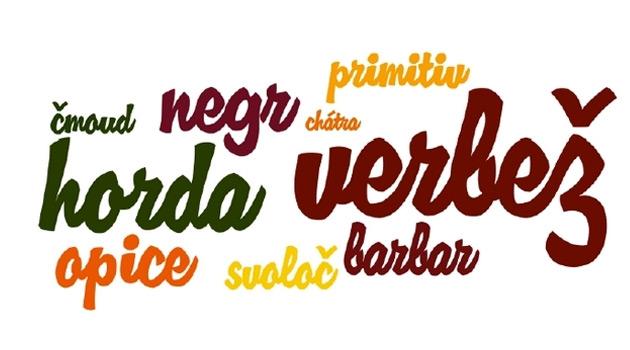Three-quarters of the online contributions posted to Czech-language social networking or other sites that are about refugees are negative. Just one quarter of the 147 000 posts monitored in May and June expressed a desire to aid refugees.
Those are the results of an analysis of online discussions in Czech produced by the Yeseter Now company for the Hate Free Culture project. The analysis also researched the role played by the media and various political declarations.
A sense of endangerment
The results show that 30 % of Czech-language online discussants do not usually bother with details and have a tendency to tar immigrants from Africa and the Middle East with the same brush. Another 45 % emphasize the difference between refugees from war zones and the phenomenon of economic migration.
Yeseter Now says that those who make that argument are doing so in part to avoid being labeled racist. Only one quarter of those participating in such discussions have no prejudices about immigrants or condemn racism programmatically.
In the online posts surveyed, refugees are most frequently referred to by the terms "hordes", "niggers", "monkeys" or "vermin". Other negative terms used are "barbarians", "rabble" or "scum".
According to the results of the analysis, the much-reported wave of refugees from various parts of the world has, on the Czech-language web, sparked the same unprecedented volume of negative communications as did January’s assassinations in the Parisian editorial offices of the satirical magazine Charlie Hebdo. "From the perspective of internet buzz, we can say that refugees have become a common theme that Czechs feel a need to express themselves on because they feel endangered – not just today, but primarily in the future," Yeseter Now writes.
Media
The mainstream media, according to the analysis, "with few exceptions do not try very hard to cultivate public discourse, rather, they support a panicked reaction to this issue. This is a vicious circle – the more this issue is written about and the greater the hysteria, the more people click on the links and drive up readership. Mainly due to the sheer number of articles and the effort to turn every banality about immigrants into a story, readers must have the feeling that nothing else is going in the Czech Republic except for hordes of Somalians rushing into the country."
The analysis also mentions the role of bloggers, especially those who post to news server iDNES.cz. "For example, on iDNES.cz, Gardavský, Rogozov, Hrindová, Konvička, Lhoťan, Vojteková and others are unequivocally violating that server’s code of ethics for bloggers because most of their content is the publication and re-circulation of various hoaxes, but they continue to be published there," the analysis says.
Greatest hatred still reserved for Roma
"Three quarters of the buzz about immigrants is negative. We might even say that it is very negative. The posts are swarming with references to ‘monkeys’ and ‘niggers’. However, the greatest degree of negative sentiment in Czech online continues to target Romani people, as it long has – and unlike Muslims or refugees, almost no one stands up for them," the analysis says.
According to the analysis, the findings once again confirm "the rule that if hatred against one specific group grows among the public, hatred for other groups with similar potential rises as well." Hatred against Muslims and refugess may momentarily be more intensive on the Czech-language web, but hatred of Romani people is gradually rising along with it.
Politicians – Konvička, Okamura, Zeman
"All Czech representatives speak in unison (covertly, to varying degrees) about re-exporting the problem of immigration to Africa, the Middle East, or Western Europe. There is no effort to calm down this complex international situation or to explain it. The current state of affairs, according to politicians, cannot be compared to the waves of emigration out of socialist Czechoslovakia, because reportedly only extraordinary individuals left our country in those days who were always a benefit to their host countries," the analysis says of the current discourse.
According to the analysis, there is no evident difference between the opinions of Czech President Zeman, anti-Islamic activist Martin Konvička or Czech MP Tomio Okamura: "Frequently it seems that domestic politicians just do their best to capture signals from the majority public so they can ride the wave of that sentiment, especially for the purposes of their own political aims and ambitions. The xenophobic dissemination of extreme anti-Muslim sentiment from politicians like Tomio Okamura or the activist Martin Konvička unfortunately is no different from the opinions of the Czech head of state. The greatest volume of communications belongs to him, with the exception of the Prime Minister. It is also very surprising to see the high volume of discussion around the figure of Adam Bartoš, a person who denies the Holocaust, publishes lists of Jews, and considers the USA to be the cause of all evil," the analysis reads.
